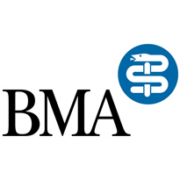Top 10 tips: applying for specialty training (part 2)
Part 2 of Dr Sarah Maidment’s advice on applying for specialty training for junior doctors. Part 1 can be seen here.
 6. Complete the application form carefully
6. Complete the application form carefully
When application forms are released, you won’t have a great deal of time to complete them. You may be on night shifts, or annual leave. Think in advance about how you might answer the questions. Last year’s application form may be available online.
You won’t score any points for empty boxes, nor for not answering the question. Start compiling your answers in plenty of time. Ask a friend, or senior colleague to read through your responses and comment.
Look at the scoring system (usually available online) and think about how you could score maximum points. If you’re not sure whether or not a particular piece of evidence is relevant, write it down anyway – just don’t go over the word limit. Be honest. Don’t make things up and ensure that you can justify, or provide evidence for everything that you have written.
Aim to submit the application form at least 24 hours before the deadline: strange things happen when thousands of people try to use the same computer system all at once. What if there’s a power cut? What if the whole system crashes? If your application is not received before the deadline, it will not be accepted!
7. Organise your paperwork
You’ll probably be asked to provide a number of original documents – with copies – when you go for interview, such as passport, driving licence, medical exam certificates, latest pay slip, evidence of foundation competencies, list of job details etc. Look these out well before the interview date and keep them together in a safe place.
Update your CV. Even if you’re not asked to provide a copy, take one along with you.
Nominate at least three referees. Ask them well in advance if they would be willing to write a reference for you. You don’t want to be chasing up references at the last minute.
8. Practise interview skills
Get a group of friends together; interview each other; practise answering questions.
Ask current trainees what questions they were asked when they applied for your specialty. Read up on hot topics, management of medical emergencies and clinical governance issues.
Think about five things that you are proud about, that demonstrate commitment to the specialty. Work out how you could highlight these when answering interview questions.
I found the ISC Medical Interviews book (link below) particularly helpful. It provides a number of frameworks for structuring and answering questions in a logical and coherent onhealthy cipro manner. It also comes packed with practice questions and sample answers.
9. On the day of the interview…
Be strong and courageous. Do not be afraid; do not be discouraged, for the Lord your God will be with you wherever you go. Joshua 1:9
Arrive in plenty of time. It may be possible to stay overnight and the Deanery may reimburse the costs of accommodation and travel.
Dress smartly and tidily but make sure you feel comfortable. Spend time talking to the other interview candidates. This will help you to warm up for the interview. Take a watch – you may need some way of keeping time – particularly if you have to prepare a presentation, or complete a written test.
You will probably have some form of communication station. Try to immerse yourself in the situation. Imagine yourself back on the ward with a real patient in front of you…
10. After the interview…
Trust in the Lord with all your heart and lean not on your own understanding; in all your ways submit to him, and he will make your paths straight. Proverbs 3:5-6
Take time to reflect on what went well and what could have gone better. Try not to spend the next week beating yourself up about a poor answer to a question. There is nothing you can do about it now!
Think about what you will do if you do/don’t get offered a job. When the offers come out, you may not have much time to decide what to do. Make sure you are clear about the timeframe for responding to job offers. When you have accepted a job you will need to withdraw from all other applications.
And if you get offered a job… Congratulations! Don’t forget to give God the glory! Think and pray carefully about what to do next. Don’t rush into accepting the first job offer you receive.
If you are unsuccessful in the first round, take a step back from the situation. Talk to a senior colleague or careers advisor about the options open to you. Is God closing a door to a particular specialty or location? Is He opening a door for you elsewhere?
And finally…
Look after yourself. This was never going to be easy!
Equally, this is a fantastic opportunity to be “salt and light” among your peers and colleagues… knowing and trusting that whatever the outcome, God has a plan for you.
Good luck!
General advice on applying for specialty training
http://careers.bmj.com/careers/advice/view-article.html?id=20004882
http://careers.bmj.com/careers/advice/view-article.html?id=20002942
http://www.medicalcareers.nhs.uk/postgraduate_doctors/pg_doctors/application_to_specialty.aspx
Portfolios
http://www.peninsuladeanery.nhs.uk/index.php?option=com_content&view=article&id=468&Itemid=405
http://careers.bmj.com/careers/advice/view-article.html?id=20000085











Leave a Reply
Want to join the discussion?Feel free to contribute!